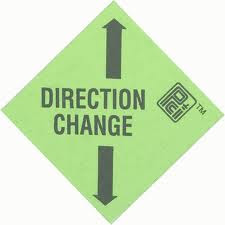We love our buzz words. In fact, every
industry from business, science, manufacturing, to marketing all have their own
unique set of buzz words. You probably use them in everyday language—out of the
box, forward thinking, face time, core competency, boilerplate, and monetize.
Now comes along a new one from the world of marketing and media. The new buzzword that is sweeping Hollywood and the entertainment industry is transmedia. Just like all other buzz words, sometimes its meaning gets lost in the translation. Some people within the entertainment industry, especially at the studio level, are calling transmedia the last great idea. It would seem that the industry is betting the future on this new and emerging concept.
So what exactly is transmedia? It starts with a big idea or concept, which is developed into a story. The question is how do you deliver it in a form of a movie or television show that can maximize its life expectancy and profits? In other words, how do you turn it into something besides a movie or television show?
Transmedia storytelling is about creating multiple platforms and formats. The goal is to use mass media to develop a media franchise. It’s more than just merchandise. That’s been around since the days of Star Wars. The goal is to create an open source where the fans actually take ownership and help create content. You become the artist, and you add content to the original story. Or you enhance the original story.
A perfect example is the hit television series, Lost. Followers created countless websites that catered to fans of the series. The users of the sites created their own mythology, storylines and explanations of Lost. The writers of the show were amazed at the depth and the analysis that the fans brought to the discussion. In reality, the fans had gone beyond the show and created their own world, which was more entertaining than the actual television series.
Transmedia storytelling involves the concept of creating multiple platforms such as video games, books, websites, and spinoffs. But it goes beyond that to include social apps, messaging, phone apps, media plug-ins, and social networks which help create a sense of community. These days, the average Hollywood film costs about $103 million to produce and market. For that kind of money, the industry expects big returns. Although there is a danger in promoting an open source concept, such as transmedia, Hollywood believes it’s a necessity in our current business environment. They are convinced they can create an overreaching narrative structure by implementing the principles of multimedia storytelling.
Today’s “tent Pole” movies are an example of where Hollywood and the entertainment industry is headed. It’s clear that the end game is all about creating the next media franchise, whether that’s Captain America, Thor, The Avengers, or Twilight. Hollywood is interested in creating the next media sensation. Who will step up and fill the shoes of Harry Potter, Pirates of the Caribbean, or Star Wars?
For better or for worse, transmedia storytelling is not only today’s reality but the future. The days of stand-alone movies without the prospects of a sequel or franchise may very well be a fading memory or a distant view in our rear view mirror
Now comes along a new one from the world of marketing and media. The new buzzword that is sweeping Hollywood and the entertainment industry is transmedia. Just like all other buzz words, sometimes its meaning gets lost in the translation. Some people within the entertainment industry, especially at the studio level, are calling transmedia the last great idea. It would seem that the industry is betting the future on this new and emerging concept.
So what exactly is transmedia? It starts with a big idea or concept, which is developed into a story. The question is how do you deliver it in a form of a movie or television show that can maximize its life expectancy and profits? In other words, how do you turn it into something besides a movie or television show?
Transmedia storytelling is about creating multiple platforms and formats. The goal is to use mass media to develop a media franchise. It’s more than just merchandise. That’s been around since the days of Star Wars. The goal is to create an open source where the fans actually take ownership and help create content. You become the artist, and you add content to the original story. Or you enhance the original story.
A perfect example is the hit television series, Lost. Followers created countless websites that catered to fans of the series. The users of the sites created their own mythology, storylines and explanations of Lost. The writers of the show were amazed at the depth and the analysis that the fans brought to the discussion. In reality, the fans had gone beyond the show and created their own world, which was more entertaining than the actual television series.
Transmedia storytelling involves the concept of creating multiple platforms such as video games, books, websites, and spinoffs. But it goes beyond that to include social apps, messaging, phone apps, media plug-ins, and social networks which help create a sense of community. These days, the average Hollywood film costs about $103 million to produce and market. For that kind of money, the industry expects big returns. Although there is a danger in promoting an open source concept, such as transmedia, Hollywood believes it’s a necessity in our current business environment. They are convinced they can create an overreaching narrative structure by implementing the principles of multimedia storytelling.
Today’s “tent Pole” movies are an example of where Hollywood and the entertainment industry is headed. It’s clear that the end game is all about creating the next media franchise, whether that’s Captain America, Thor, The Avengers, or Twilight. Hollywood is interested in creating the next media sensation. Who will step up and fill the shoes of Harry Potter, Pirates of the Caribbean, or Star Wars?
For better or for worse, transmedia storytelling is not only today’s reality but the future. The days of stand-alone movies without the prospects of a sequel or franchise may very well be a fading memory or a distant view in our rear view mirror






















